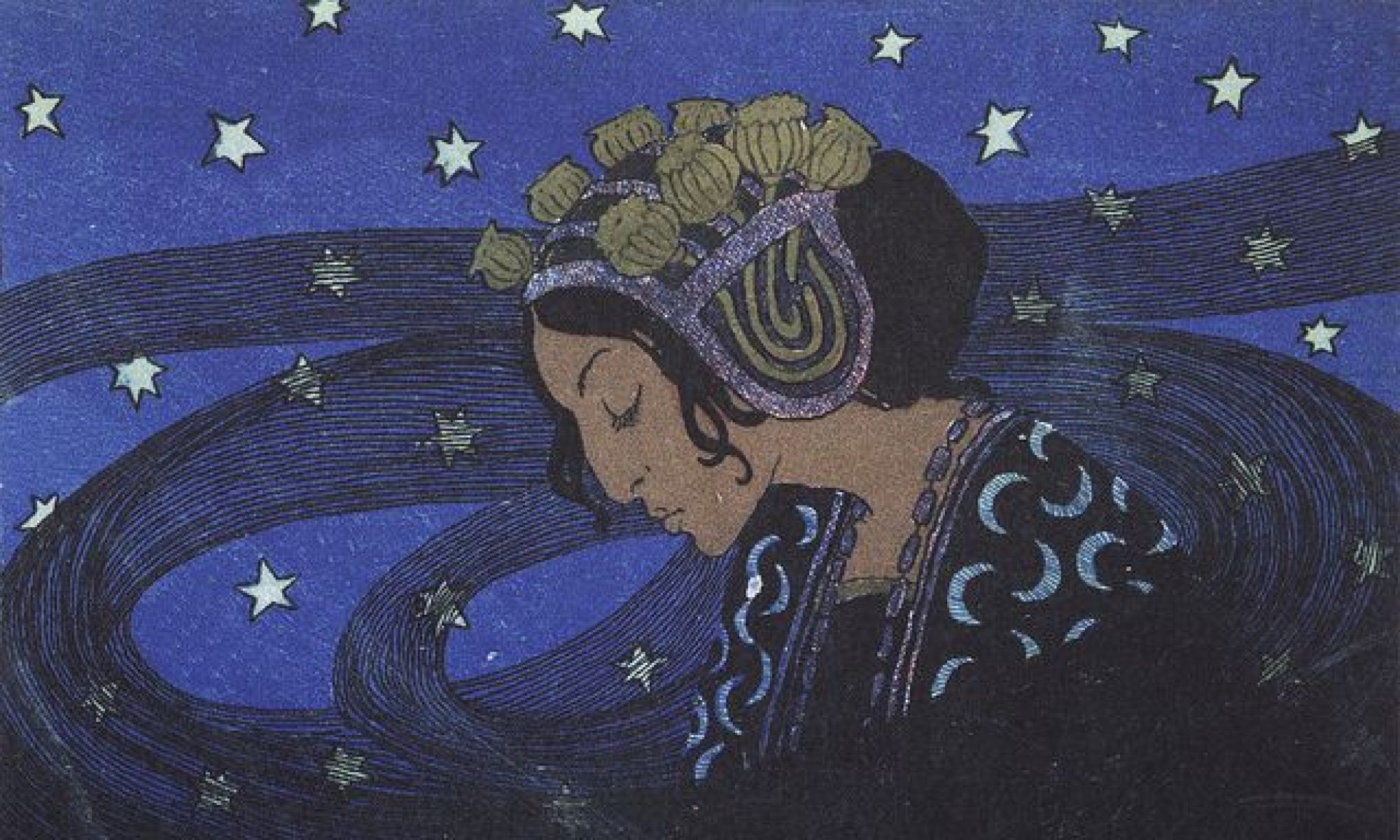ἄρκτος ἦ Βραυρωνίοις
by Sonya Taaffe
for Selkie
Think of those girls
in their cove at the mouth of the Erasinos,
the well-born daughters of Athens
sent to the wild shore.
Picture them dancing, racing
barefoot like mountain nymphs,
curveless children
cub-naked in borrowed black fur.
At night they sleep in the shadows of limestone
like hill caves,
by day stroke the soft ears of hares
that the hunt-goddess leaves to graze.
The stories their priestess tells them
are the maiden’s,
the saving of Iphigeneia
while Zeus-raped Kallisto
wheels low with her son among the winter stars.
Saffron-clothed, they chase and strip and tumble
and rise named women
before their blood comes in.
Little girls, playing the bear for Artemis,
away from the cities of men and marriage—
look on them
all innocent as Aktaion
and it will not be hounds
that set their teeth in to bring you down.
*
Author’s Note: The title of this poem comes from a line in Aristophanes’ Lysistrata; it means a bear at the Brauronian rites. Scholia on the passage explain that Athenian girls of good family between the ages of five and ten were dedicated to Artemis at her coastal temple at Brauron and served the goddess by “playing the bear,” celebrating every four years a festival called the Arkteia that expiated the killing of a she-bear that lived at the temple; to placate the goddess for her loss, the Athenians sent their daughters to be Artemis’ bears instead. Archaeology at the site turns up votive offerings associated with the work of women’s lives—spindles, loom weights, jewel-boxes, mirrors—as well as records of textiles in keeping with the tradition of dedicating to Iphigenia, the first priestess of Artemis at Brauron after she was (according to Euripides) spirited away from her father’s knife, the garments of women who died in childbirth. Painted krateriskoi show scenes of girls running or dancing, some of them very atypically for women in Greek vase paintings naked. It is interpreted by contemporary scholars as an initiatory practice: a ritual wildness before the transition to adulthood, civilization, marriage. The last four lines are my invention, but I am following the lead of Kallimachos and also my feelings about the Kavanaugh confirmation.
*
Sonya Taaffe reads dead languages and tells living stories. Her short fiction and poetry have been collected most recently in Forget the Sleepless Shores (Lethe Press) and previously in Singing Innocence and Experience, Postcards from the Province of Hyphens, A Mayse-Bikhl, and Ghost Signs. She lives with her husband and two cats in Somerville, Massachusetts, where she writes about film for Patreon and remains proud of naming a Kuiper belt object.
